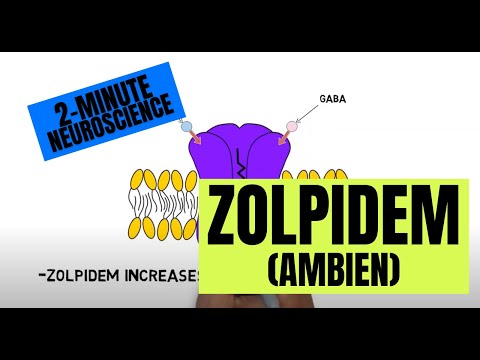- Subjects: Neurosciences
- |
- Contributor:
- Neuroscientifically Challenged
- restless legs syndrome
- RLS
This video is adapted from: https://www.youtube.com/watch?v=D6WmNTQTAfc
Restless legs syndrome (RLS) is a condition that causes an urge to move the legs that often occurs along with uncomfortable sensations in the legs. In this video, I discuss RLS and the neurological mechanisms that might underlie it. [1][2][3][4]
TRANSCRIPT:
Restless legs syndrome or RLS is a condition that causes an urge to move the legs that often occurs along with uncomfortable sensations in the legs or sometimes in other body parts. The unpleasant sensations and urges to move the legs typically begin or become worse when someone is at rest, and they often only occur in the evening or at night. Movement tends to relieve the unpleasant sensations and urges to move, at least for as long as the movement lasts. Patients with RLS also often have insomnia and experience involuntary periodic leg movements during sleep or resting wakefulness.
The mechanisms underlying RLS are not well understood. Genetic factors play a large role in susceptibility, but it’s thought that in most patients environmental factors must interact with genetics to bring about the condition. The most commonly-identified environmental factor in RLS is iron deficiency, and iron deficiency in the brain is the best-known neurological feature of RLS. It’s thought that this brain iron deficiency might be the result of an impaired ability of the brain to take iron up out of the blood and import it into neurons, and it may have multiple effects on brain function. For example, brain iron deficiency may disrupt oxygen transport and impair myelination, and it might be related to abnormal signaling in multiple neurotransmitter systems.
Abnormalities in dopamine signaling are thought to play an important role in RLS, and drugs that increase dopamine activity can offer therapeutic benefits to RLS patients. Research, however, suggests RLS patients do not have low dopamine levels, and thus the reason for the benefit offered by dopamine-increasing drugs is not completely understood. Despite the short-term benefits, long-term use of dopamine-increasing drugs tends to cause what is known as augmentation, where RLS symptoms worsen with continued use of medication. Thus, alternative drugs are often used when possible.
- Allen RP. Restless Leg Syndrome/Willis-Ekbom Disease Pathophysiology. Sleep Med Clin. 2015 Sep;10(3):207-14, xi. doi: 10.1016/j.jsmc.2015.05.022. Epub 2015 Jul 15. PMID: 26329430; PMCID: PMC4559751.
- Allen RP, Earley CJ. The role of iron in restless legs syndrome. Mov Disord. 2007;22 Suppl 18:S440-8. doi: 10.1002/mds.21607. Erratum in: Mov Disord. 2008 Jun;23(8):1200-2. PMID: 17566122.
- Manconi M, Garcia-Borreguero D, Schormair B, Videnovic A, Berger K, Ferri R, Dauvilliers Y. Restless legs syndrome. Nat Rev Dis Primers. 2021 Nov 3;7(1):80. doi: 10.1038/s41572-021-00311-z. PMID: 34732752.
- Trenkwalder C, Allen R, Högl B, Clemens S, Patton S, Schormair B, Winkelmann J. Comorbidities, treatment, and pathophysiology in restless legs syndrome. Lancet Neurol. 2018 Nov;17(11):994-1005. doi: 10.1016/S1474-4422(18)30311-9. Epub 2018 Sep 21. PMID: 30244828.


























































































































































